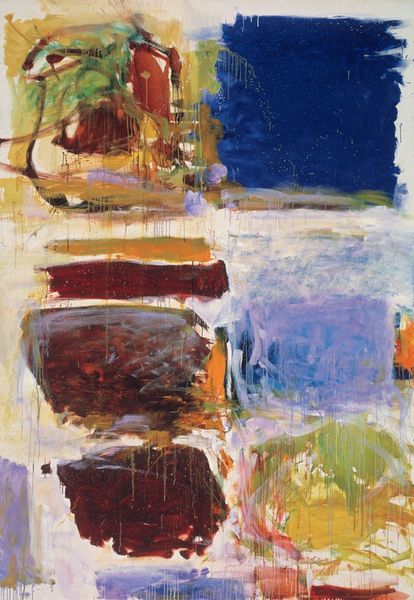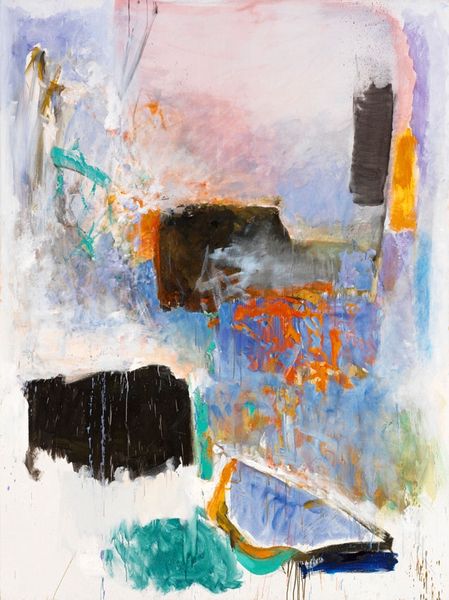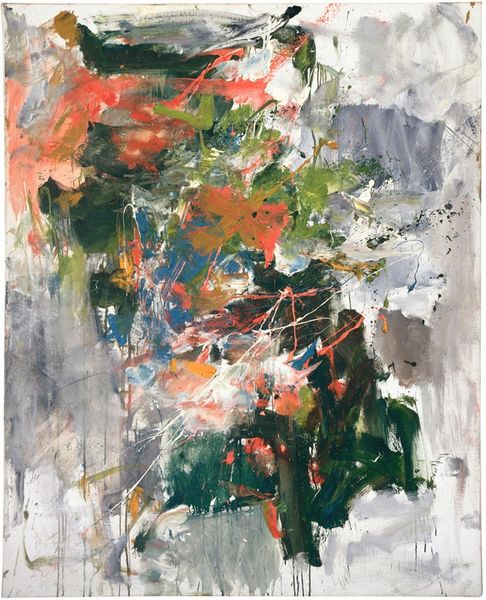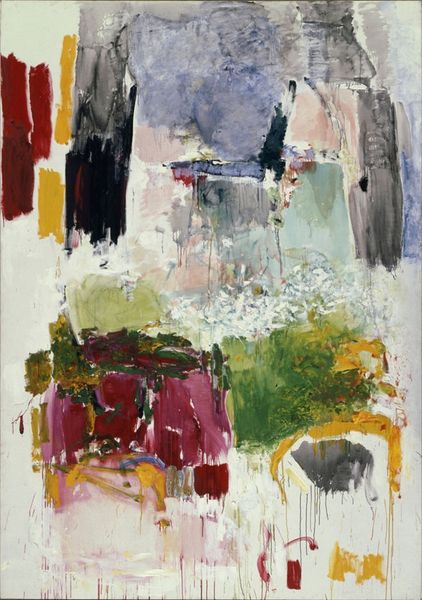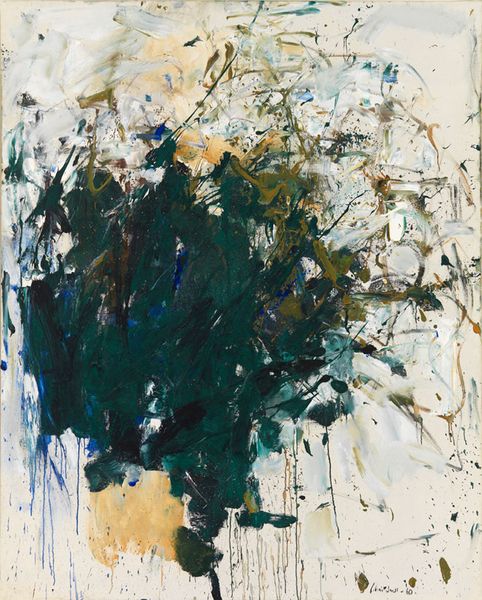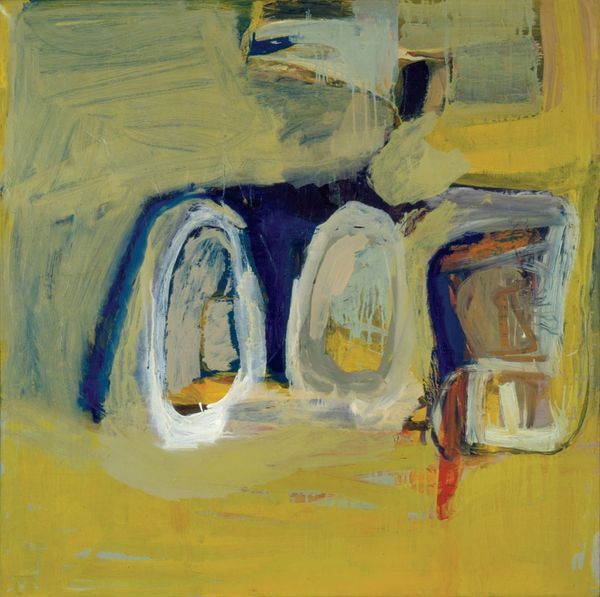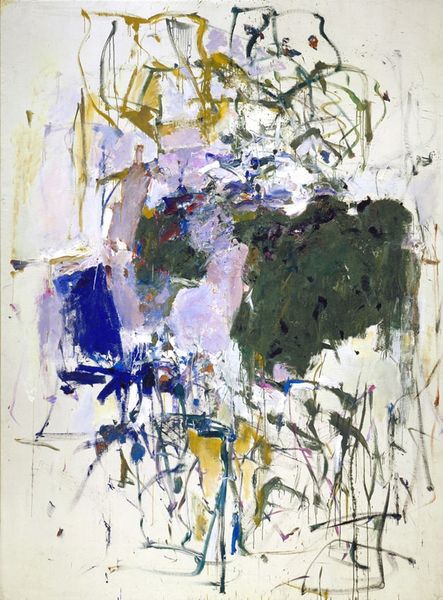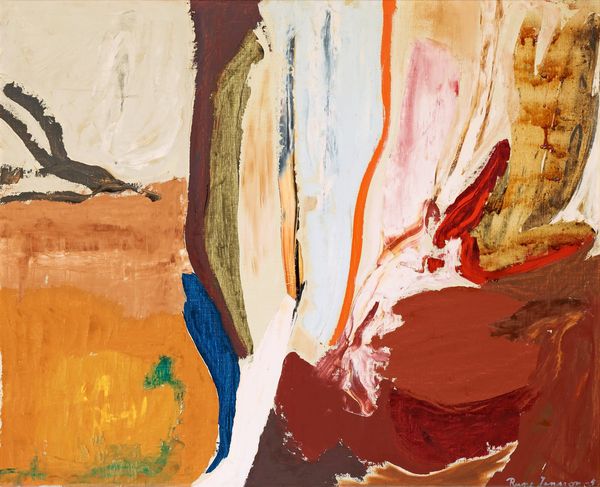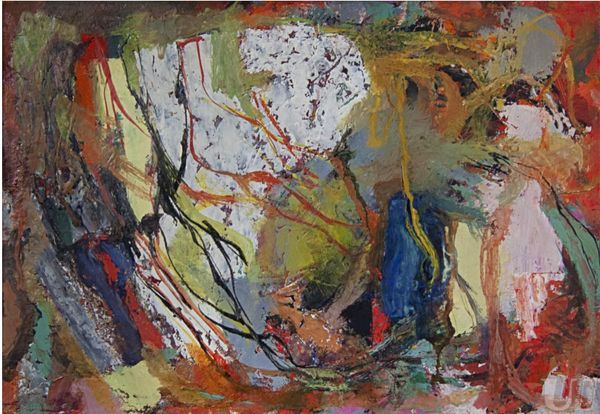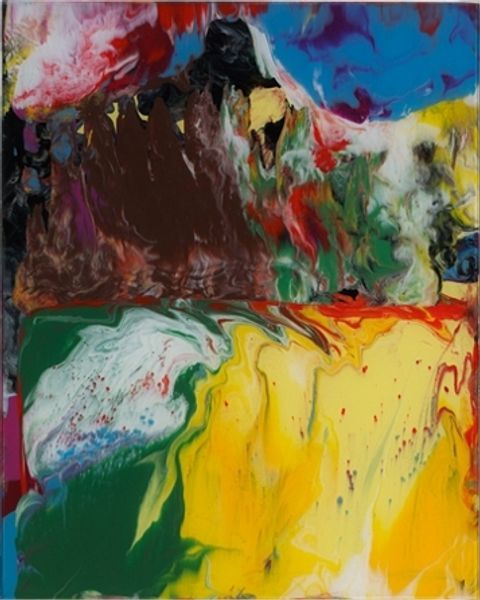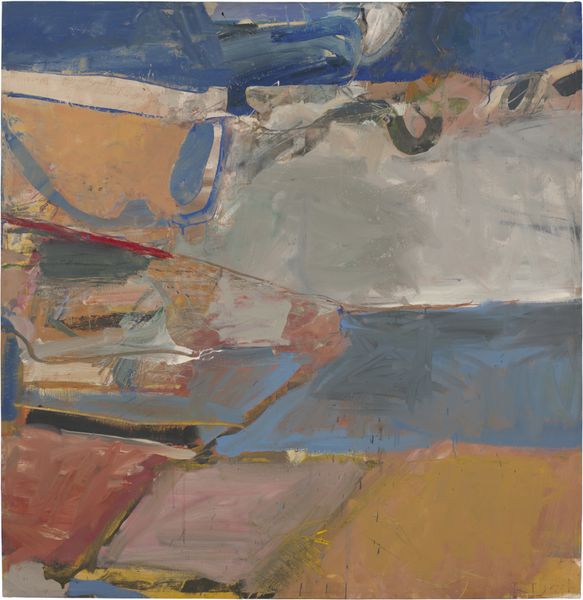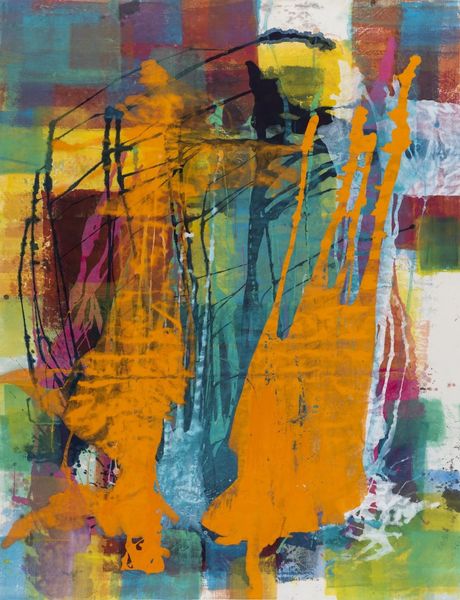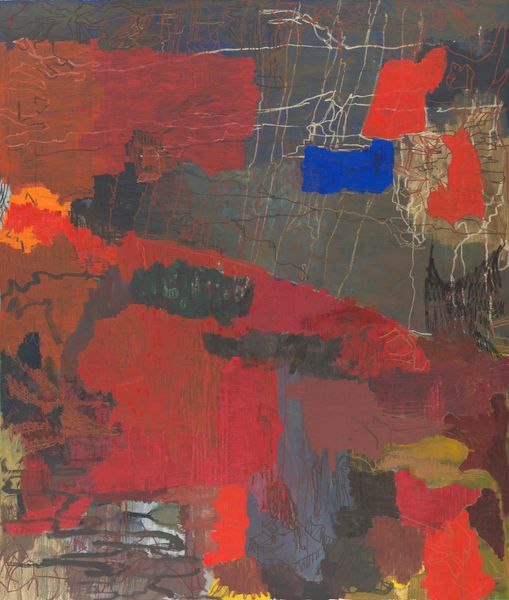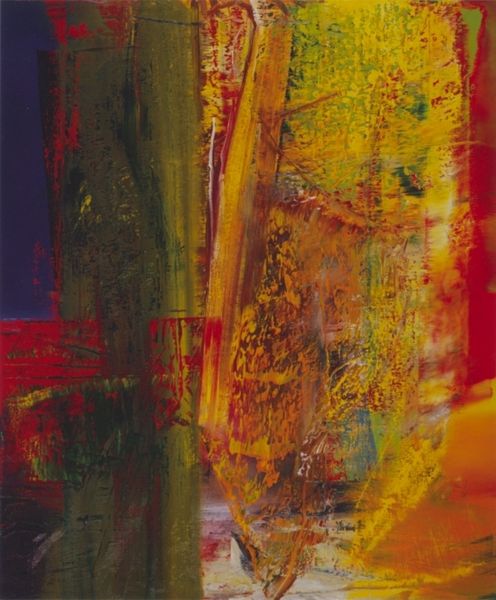
oil-paint
#
abstract-expressionism
#
abstract expressionism
#
oil-paint
#
form
#
oil painting
#
abstraction
#
line
Copyright: Franz Kline,Fair Use
Curator: This untitled oil painting from 1960 is by Franz Kline. What strikes you first about it? Editor: The textures! It feels incredibly raw and physical. You can practically feel the viscosity of the paint and the force behind each brushstroke. It’s less about image and more about pure process. Curator: Exactly. And if you look closely, you might notice certain repeating vertical and horizontal planes. Kline himself spoke of these planes as a psychological architecture – invoking something both internal and universal. Think of it in terms of landscape. Do you see symbolic echoes of scaffolding or perhaps a cityscape in ruin? Editor: A cityscape absolutely, one that feels both monumental and fragmented. Look at how Kline layers the colors - the blues bleeding into the earthy browns, juxtaposed against those slashes of intense black and green. There's such clear visual evidence of the choices made by Kline in his studio in the pursuit of a single painterly goal, isn't it magnificent? It shows that no effect in Abstract Expressionism can exist separate from the process and the materiality itself. Curator: That resonates with Kline's broader influences. He had great admiration for calligraphy and we also understand that the black and white colors present were inspired by seeing magnified sketches. Editor: Fascinating, and how this scale allows you to notice details you wouldn’t otherwise perceive, underscoring its objecthood, its physicality. We see his work more clearly by acknowledging and thinking through this artistic and physical effort. Curator: Considering that physical exertion, do you notice any personal or cultural symbols appearing within the painting? For example, many suggest there are echoes of train trestles that connect back to Kline’s Pennsylvania upbringing and his experience working in steel factories. Editor: I’m wary of projecting such explicit iconography; my perspective is how the artwork is evidence of production and manufacture. Rather, what’s potent is Kline's insistence on stripping down imagery to its fundamental components. His work is a stark rejection of traditional painting techniques in favor of direct, almost primal application. Curator: Fair enough. It certainly encapsulates Abstract Expressionism’s departure from established visual codes. The bold gestures are what leave a lasting impression and challenge our ideas of what image creation looks like. Editor: It highlights the realness, the labor of art-making. Kline urges viewers to consider the materials at hand in our daily interactions, how he manipulated it into this evocative object. Curator: And, hopefully, reflect upon the history—personal or otherwise— that it seems to carry with it.
Comments
No comments
Be the first to comment and join the conversation on the ultimate creative platform.
